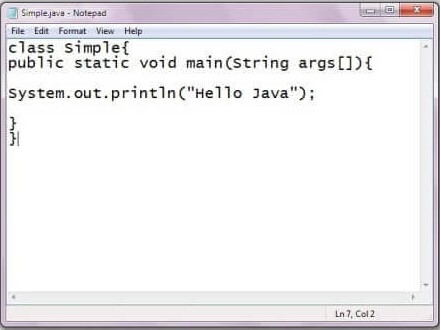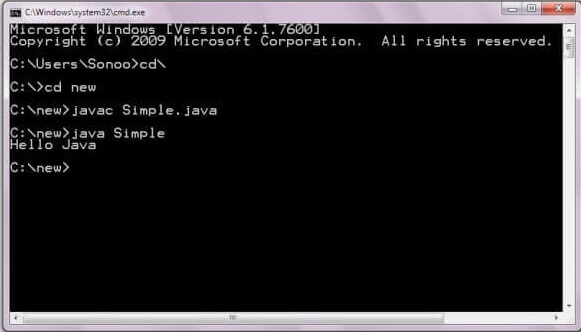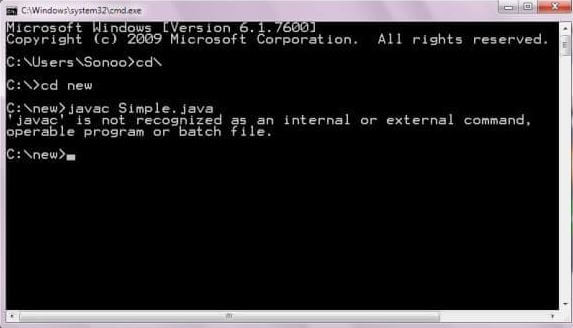First Java Program | Hello World ExampleIn this section, we will learn how to write the simple program of Java. We can write a simple hello Java program easily after installing the JDK. To create a simple Java program, you need to create a class that contains the main method. Let's understand the requirement first. The requirement for Java Hello World ExampleFor executing any Java program, the following software or application must be properly installed.
Creating Hello World ExampleLet's create the hello java program: Test it NowSave the above file as Simple.java.
Output: Hello Java Compilation Flow: When we compile Java program using javac tool, the Java compiler converts the source code into byte code. 
Parameters used in First Java ProgramLet's see what is the meaning of class, public, static, void, main, String[], System.out.println().
To write the simple program, you need to open notepad by start menu -> All Programs -> Accessories -> Notepad and write a simple program as we have shownbelow: 
As displayed in the above diagram, write the simple program of Java in notepad and saved it as Simple.java. In order to compile and run the above program, you need to open the command prompt by start menu -> All Programs -> Accessories -> command prompt. When we have done with all the steps properly, it shows the following output: 
To compile and run the above program, go to your current directory first; my current directory is c:\new. Write here:
In how many ways we can write a Java program?There are many ways to write a Java program. The modifications that can be done in a Java program are given below: 1) By changing the sequence of the modifiers, method prototype is not changed in Java. Let's see the simple code of the main method. 2) The subscript notation in the Java array can be used after type, before the variable or after the variable. Let's see the different codes to write the main method. 3) You can provide var-args support to the main() method by passing 3 ellipses (dots) Let's see the simple code of using var-args in the main() method. We will learn about var-args later in the Java New Features chapter. 4) Having a semicolon at the end of class is optional in Java. Let's see the simple code. Valid Java main() method signatureInvalid Java main() method signatureResolving an error "javac is not recognized as an internal or external command"?If there occurs a problem like displayed in the below figure, you need to set a path. Since DOS doesn't recognize javac and java as internal or external command. To overcome this problem, we need to set a path. The path is not required in a case where you save your program inside the JDK/bin directory. However, it is an excellent approach to set the path. Click here for How to set path in java. 
Next TopicInternal details of Hello Java Program
|
 For Videos Join Our Youtube Channel: Join Now
For Videos Join Our Youtube Channel: Join Now
Feedback
- Send your Feedback to [email protected]
Help Others, Please Share









